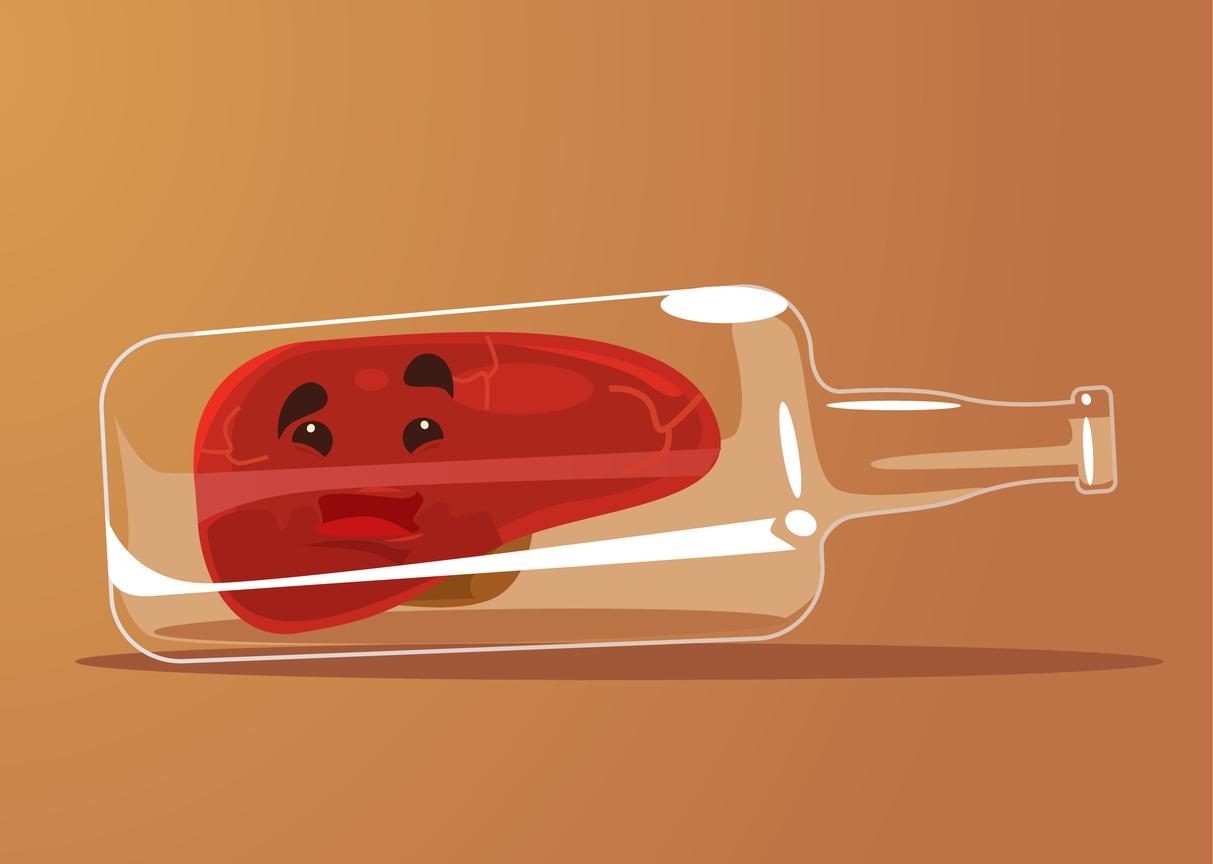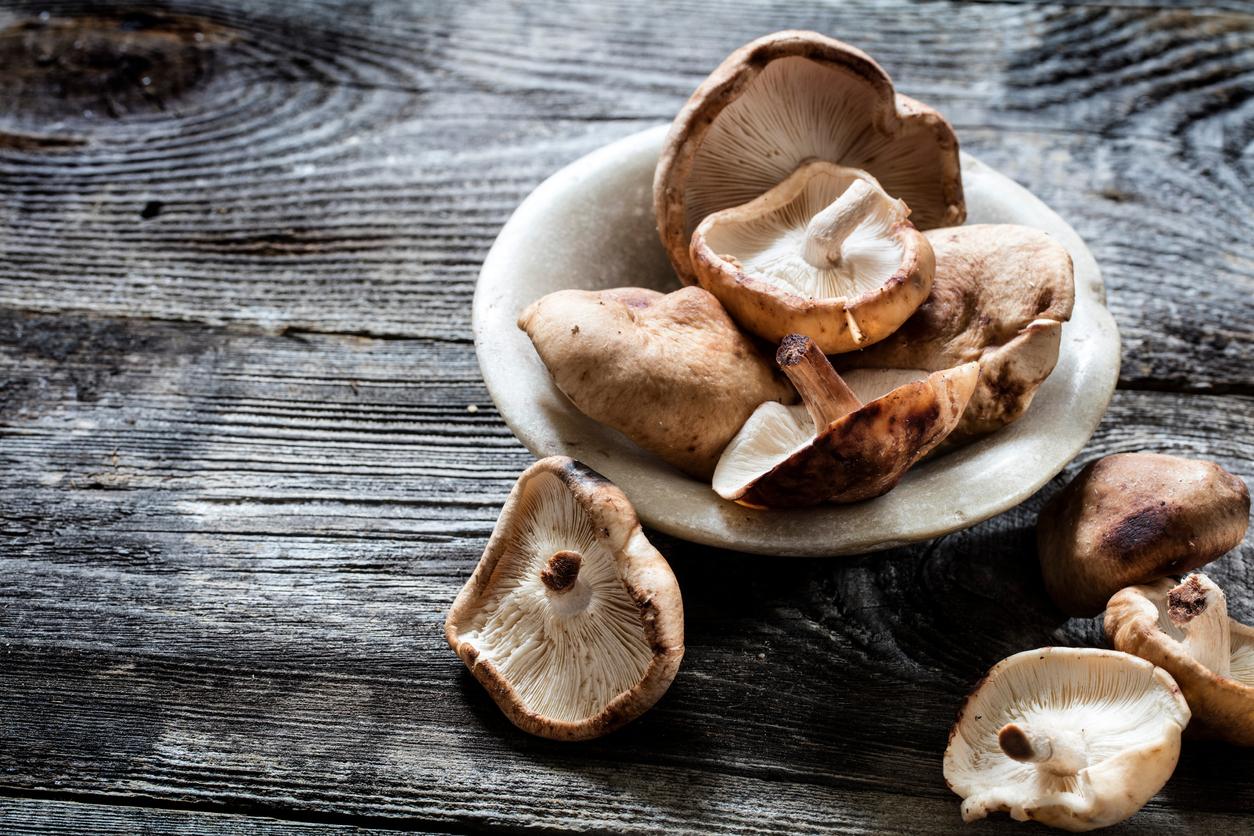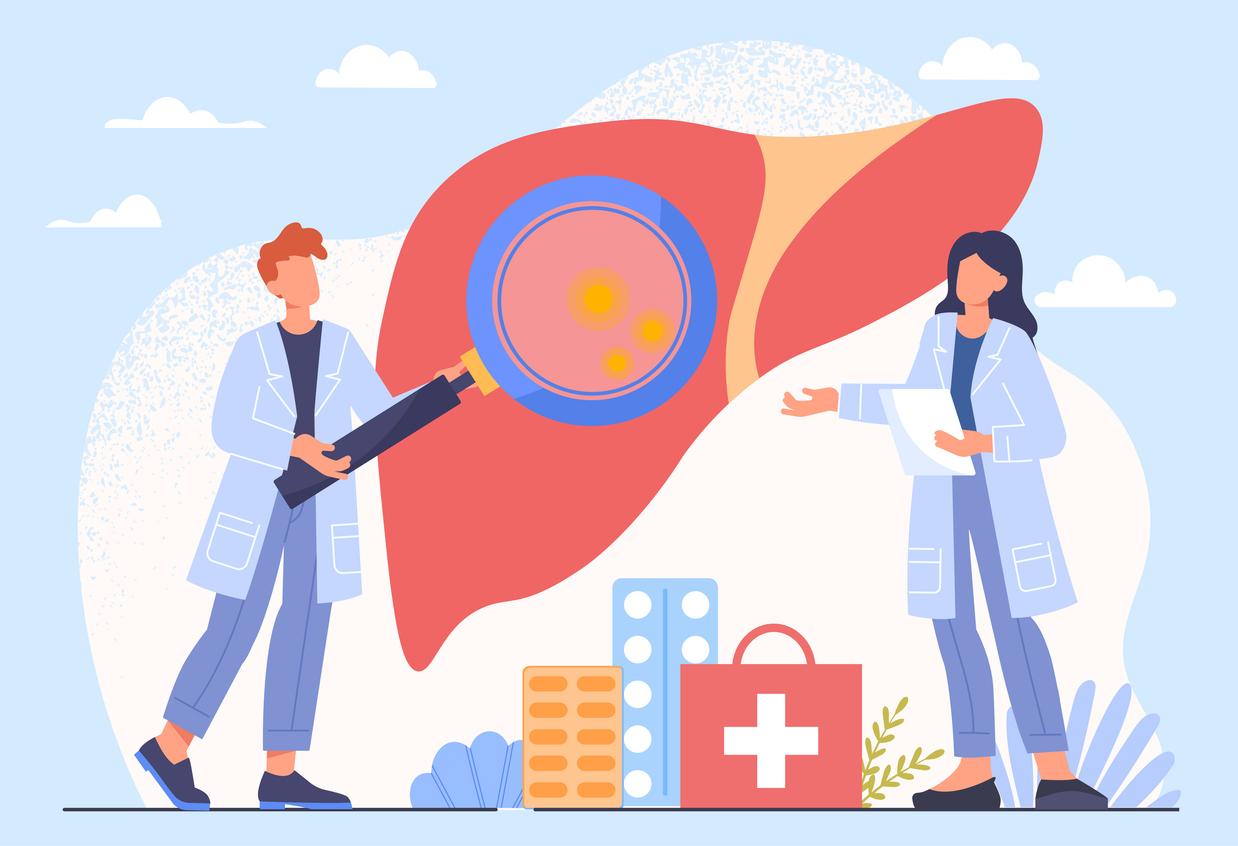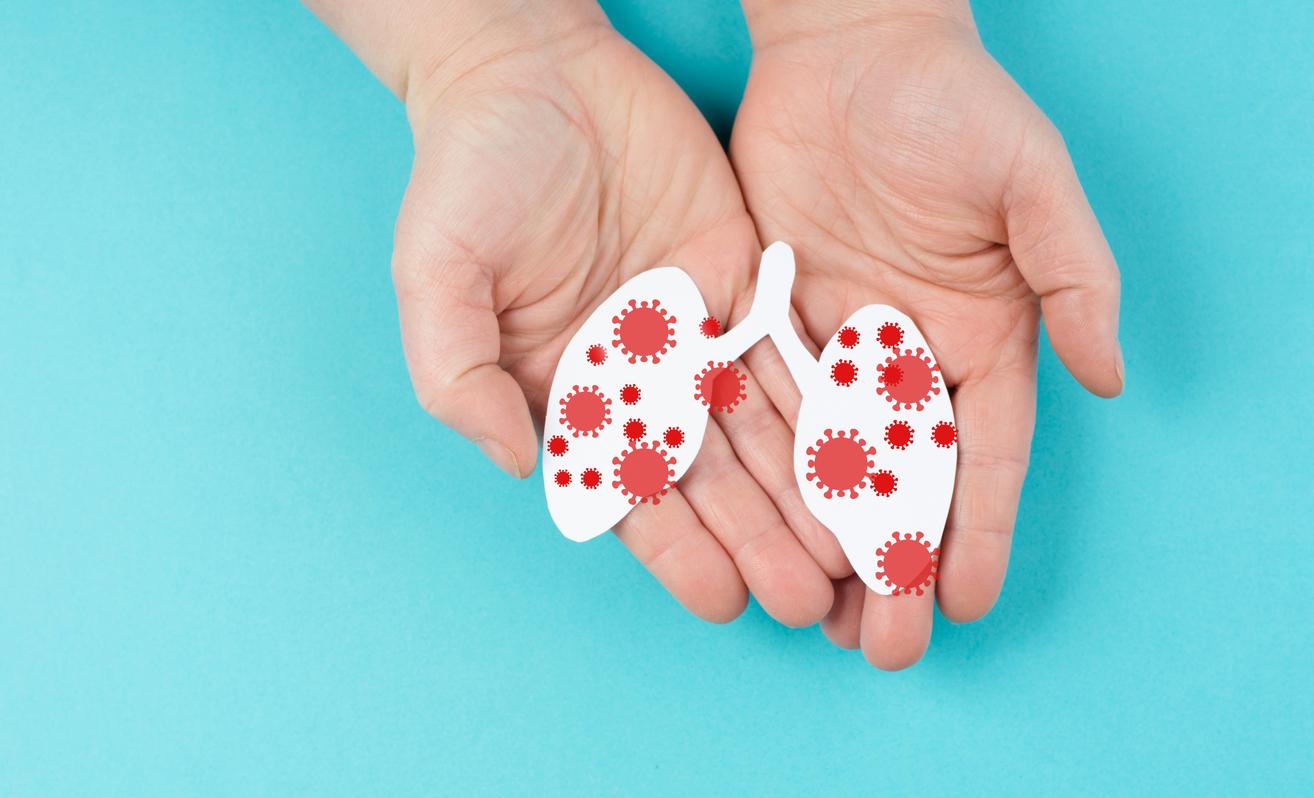Adding chronic alcohol consumption to the weekend express bitures is a bad idea. The effects of alcohol on the liver are multiplied.

One in 10 French people consumes alcohol every day. Almost as many experience repeated intoxication. The cocktail is particularly dangerous for the liver, as revealed by a study published in the journal Biomolecules. Combine chronic alcoholism and binge drinking increases alcohol-related liver damage, which affects the functioning of the organ.
Four groups of mice were separated during the work. Some were exposed to daily doses of alcohol, others experienced occasional massive consumption, but repeated. A third group was exposed to both modes of consumption. The last one served as a control. The objective was to distinguish the impact of different alcohol consumptions on the liver of animals.
Chronic lesions
Compared to the control group, chronic or occasional exposure to alcohol alone has a moderate impact. On the other hand, the mixture of the two is terrible for the liver. Mice show more necrosis, markers of liver disease and alcohol-related oxidative stress also increase. “The amount of fatty deposits in their livers was even more shocking,” says Shivendra Shukla, lead author of the study. It was about 13 times higher than in the control group. And this damage is lasting: the livers analyzed show signs of chronic lesions.
In fact, the combination of chronic drinking and heavy one-time drinking (API) induces metabolic changes in the liver, which then loses its ability to fight the stress it faces.
According to the authors, the liver is not the only organ to be affected by such behavior. “Drinking alcohol in excess can trigger an inflammatory response in the liver and other organs of the body,” explains Shivendra Shukla. If these organs are working at a lower level, a whole host of physiological processes can be affected. At the dawn of New Year’s Eve, it is therefore better to remain cautious.
.
















